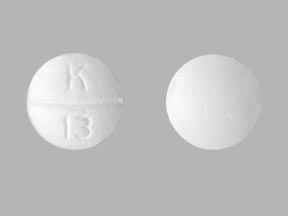Betaxolol Dosage
Medically reviewed by Drugs.com. Last updated on Jul 31, 2025.
Applies to the following strengths: 20 mg; 10 mg
Usual Adult Dose for:
Additional dosage information:
Usual Adult Dose for Hypertension
Initial dose: 10 mg orally once a day
Dose titration: If desired response is not achieved after 1 to 2 weeks, dose may be doubled.
Maximum dose: 40 mg per day
Comments:
- Doses greater than 20 mg once a day did not result in significant additional antihypertensive effects; however, the 40 mg dose has been studied and was well tolerated.
Use: Management of hypertension alone or with another antihypertensive agent, especially thiazide diuretics
Renal Dose Adjustments
Mild to moderate renal impairment: No adjustment recommended
Severe renal impairment: Initial dose: 5 mg orally once a day; may increase in 5 mg increments every 2 weeks as needed to a maximum dose of 20 mg orally once a day.
Liver Dose Adjustments
No adjustment recommended.
Dose Adjustments
Bronchospastic disease:
- Use not recommended
- However, if use is necessary, use the lowest possible dose and ensure a bronchodilator is available.
- For doses over 10 mg, consider dividing dosage to avoid higher peak blood levels associated with once a day dosing.
Precautions
Safety and efficacy have not been established in patients younger than 18 years.
Consult WARNINGS section for additional precautions.
Dialysis
Hemodialysis:
- Initial dose: 5 mg orally once a day
- If response not achieved, increase dose in 5 mg increments every 2 weeks.
- Maximum dose: 20 mg/day
Peritoneal dialysis: This drug is dialyzable; however, no dose adjustment guidelines have been provided.
Other Comments
Administration advice:
- If a dose is missed, take it as soon as remembered; if it is close to the next dose, skip the missed dose; do not double the dose.
General:
- If discontinuation is necessary, gradually taper over 2 weeks, monitor for the signs and symptoms of heart failure and limit exercise.
- Monitor patients taking concurrent ophthalmic beta-blocker solutions for additive effects (e.g., bradycardia, reduced intraocular pressure, and hypotension).
- Inform physicians, ophthalmologists, and dentists when using this drug, especially if surgery is planned.
- This drug interferes with allergic reaction modulation and may increase the risk of anaphylactic reactions; additionally, patients may be refractory to epinephrine in treatment for anaphylactic reactions.
Monitoring:
- Heart rate and blood pressure
- Signs and symptoms of heart failure (e.g., shortness of breath, edema, and weight gain), especially in at risk patients
- Signs and symptoms of angina in patients with coronary heart disease, especially during withdrawal
Patient advice:
- Warn patients to avoid interruptions or abrupt discontinuation of this drug.
- Instruct patients to notify their healthcare provider upon signs and symptoms of angina, bradycardia, hypotension, or heart failure (e.g., shortness of breath, edema, and weight gain).
- Avoid driving or operating machinery until the full effects are known.
- Advise patient to speak to healthcare provider if pregnant, intend to become pregnant, or are breastfeeding.
- Patients with diabetes should be informed that this drug may mask hypoglycemic reactions.
More about betaxolol
- Check interactions
- Compare alternatives
- Pricing & coupons
- Reviews (1)
- Drug images
- Latest FDA alerts (1)
- Side effects
- During pregnancy
- Drug class: cardioselective beta blockers
- Breastfeeding
- En español
Patient resources
Other brands
Professional resources
Related treatment guides
See also:
Further information
Always consult your healthcare provider to ensure the information displayed on this page applies to your personal circumstances.


